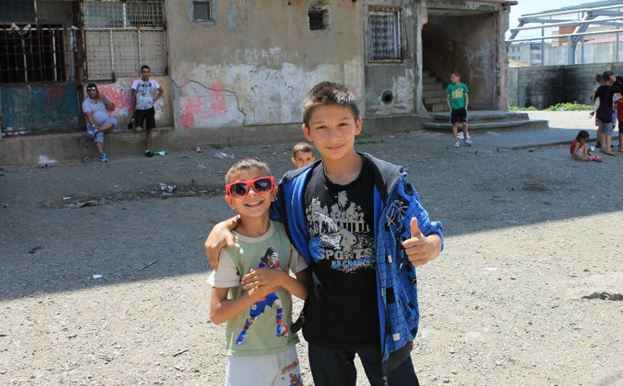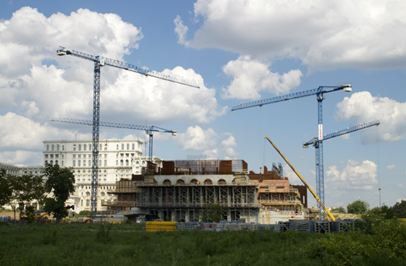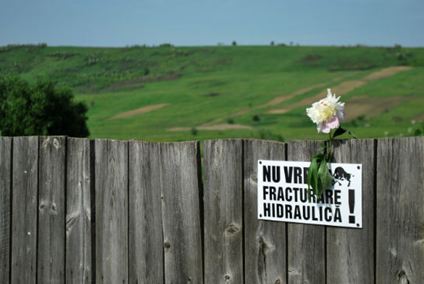Most links lead to French-language pages.
Misinformation abounds in France when it comes to Romania, and the Newsroum project, an online initiative that sought to present different perspectives on Romania than have been shown in France's mainstream media, wanted to do something about it.
Indeed, clichés abound in France about the eastern European country and especially about the Roma community. As previously reported on Global Voices, the Roma community face the stigma of being thieves or not being willing to follow society's rules in France. To be clear, Romania is not the same as the Roma community, who live throughout Europe, but the confusion is common and the prejudices hurt both the Roma community and the citizens of Romania at large.
Newsroum, a project driven by CELSA (a French journalism school at La Sorbonne in Paris), sought to help French people know Romania better. For 11 days until May 30, 22 journalism students researched the country in order to understand the nation better against the backdrop of the European elections.
The project presented four main themes that contained multimedia content and long-form articles: everyday lives of Romanian citizens, the country's economy, the land and its borders, and Romanian cultural treasures and ideas. The 22 students were all based in the capital Bucarest and traveled Romania from east to west for their research. Here are highlights of their findings.
Crossing into Tiraspol*, capital of Transnistria, Sophie Gautier looked into the underlying separation between citizens of Romanian descents and other communities. Back in Baia Mare,Romania, Gautier looked into the complex relationship of the city with its Roma community:
Les communautés roms ne parlent pas d’une même voix. À Craica, les habitants tiennent à leur campement de fortune, synonyme pour eux de liberté. Dans les logements sociaux d’Horea, certaines familles Roms ne pensent qu’à une chose : réunir l’argent nécessaire pour rejoindre la France.
When it comes to their views on life in this region, the Roma community is divided. In Craica, some of them would not leave their camps for anything in the world because it is the symbol of their freedom. In the social housing of Horea, some families have a different take and their main goal is to save enough money to go to France.
Other students wanted to understand the role of the all mighty and ever-present Romanian Orthodox Church. Clémence Leleu reported:
L’Eglise intervient aussi sur les questions d’éducation. En 2006, elle a notamment réussi à faire supprimer la théorie évolutionniste des manuels de biologie. Sa capacité d’influence s’étend aussi à la politique.
The church here has a say on the issue of education. In 2006, it was able to remove the theory of evolution from biology textbooks. Its sphere of influence extends to politics as well.
Other students researched corruption within Romania's media and other issues that Romania's civil society combats on a daily basis. For instance, Carole Blanchard reported on the village of Pungesti's fight against a fracking project in their region:
Les conséquences écologiques liées à la fracturation hydraulique inquiètent les habitants. La méthode consiste à injecter à haute pression de l’eau et des produits chimiques pour libérer le gaz.
The environmental consequences of hydraulic fracturing are a major concern for residents. They worry about this method, which consists of injecting high pressure water and chemicals for releasing shale gas.
Gheorghe Munteanu, an 81-year-old resident, added:
Je suis né ici et je mourrai ici. Je veux juste que l’eau reste claire et la terre pure pour mes enfants.
I was born here and I will die here. I just want to keep the water clean and the land unsoiled for my children.
To give additional exposure to this project, the students appeared on a few radio broadcasts like RFI Romania and organised some cultural events in France about the Timisoara theater scene or the art design factory in Cluj.
*An earlier version of this post misspelled Tiraspol and said that it was located in Romania. It is, in fact, located in neighboring Transnistria. Thanks to Tiberius Alexander for spotting the error.











6 comments
Tirapisol – is not a city in Romania!
Yes, spelling error. it should have read Tiraspol. Thanks for the heads up.
ok, but still tiraspol is not in Romania!!!
Only idiots confuse Romanians with the Roma.
Quote/No one is accusing the Orthodox Church of any kind of conspiracy to replace evolution with creationism by the back door. “The only motivation I can see is the lack of vision on pupils’ education in Romania,” says Cernea.
In 2006, the Ministry of Education and Research also removed Voltaire, Camus and Nietzsche from the philosophy curriculum. These three writers are noted for their critical views on religion and Nietzsche’s pronouncement that ‘God is dead’./unquote
Atheists’ paranoia.